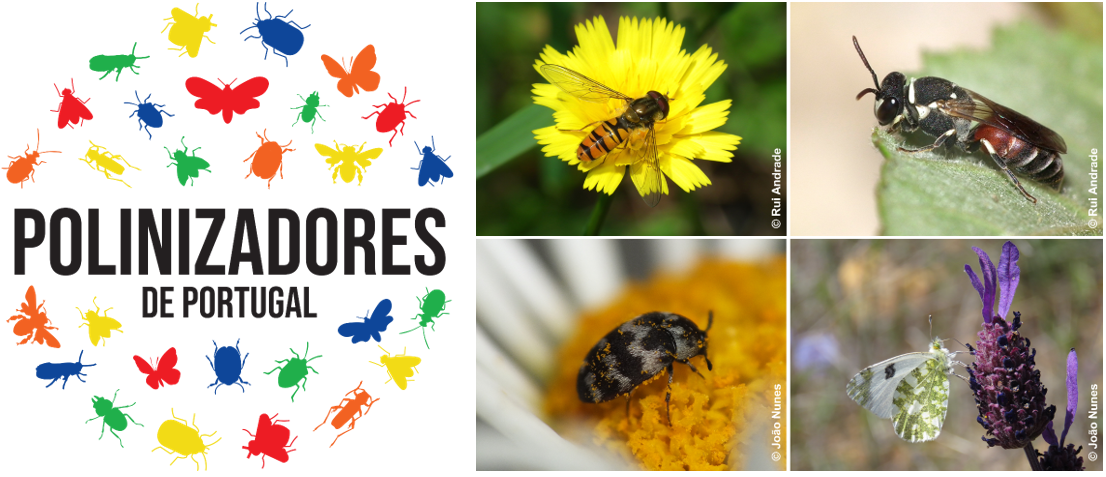
PORBIOTA/LifeWatch Portgual together with a plethora of museums, academic institutions, NGOs, municipalities, schools and other partners in Portugal, is promoting the “Polinizadores de Portugal” initiative to foster public (individual) participation in the collection of distribution data of Portuguese pollinators.
“Polinizadores de Portugal” (Pollinators of Portugal), is a citizen science project launched by CIBIO-InBIO and Parque Biológico de Gaia, and is based on the BioDiversity4All platform, the Portuguese node of the iNaturalist Network. The intention is to better understand the distribution of pollinating species, their rarity and the periods in which flowers are visited. Since January, over 18000 records of more than 1800 species of arthropods have already been submitted.
The first public campaign took place in May, during the lockdown, when citizens were called on to use a camera or cell phone and register the pollinators that visit flowers at home and surrounding areas, while fully respecting the safety measures in place. Citizens inspected pots on their balconies and in the gardens and more than 5,500 records were gathered in a single month.
Moths and butterflies were the most recorded insects, followed by beetles, flies and the group that includes bees, wasps and ants.
A new campaign will take place 12-20 September, celebrating Ecology Day on 14 September and International Microorganism Day on 17 September, to help focus attention on the intricate connections between organisms, nature and our daily lives.
The data recovered comprises mostly information on insects and will be an important contribution to the knowledge and study of the entomofauna of Portugal. It will also constitute a precious tool to assist in the elaboration of the first Red List of Invertebrates in Portugal. Can you help us? We are counting on you too! Here are those links again: BioDiversity4All, and the Launch of the National Citizen Science Project.